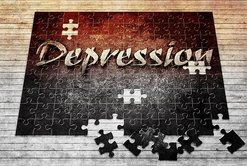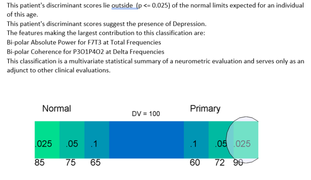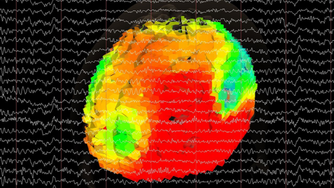 Depression is becoming more and more of an issue. And more and more young people are depressed, according to this article here: https://www.webmd.com/depression/news/20180511/depression-striking-more-young-people-than-ever#1 Some depressed people have been in psychotherapy for years or even decades. The absence of a resolution of the depression symptoms suggests that there may be a brain-based reason for the depression. Younger people may not have been depressed as long, but the same analysis can be used to figure out what are the best treatment options.  Depression and the brain More and more studies and research are showing that particular areas of the brain are involved in depression. These include areas like the frontal lobe, which often shows asymmetry in function when viewed on a qEEG brainmap. Another area is the anterior cingulate. I have the ability to look at these areas of the brain and determine if they may be contributing to your symptoms of depression. When a patient comes and sees me for symptoms of depression, I first take a history of symptoms and what seems to have helped and not helped. If appropriate, we can record the brain to determine if there are dysregulated areas of the brain that can be linked to symptoms of depression.  Brain Dx has a discriminant function aiding in the proper diagnosis of depression. Brain Dx has a discriminant function aiding in the proper diagnosis of depression. The Depression discriminant I utilize a program called Brain Dx that has in it a multivariate discriminant that essentially calculates the likelihood that a brain is that of a depressed person. It's not a stand alone tool for diagnosing depression. But if I'm trying to figure out if a person has a brain-based depression vs. a depression that would respond better to psychotherapy, the discriminant can really help. The discriminant helps further confirm that the symptoms of depression are brain-based and brain-based interventions are appropriate.  Utilizing a program called BrainAvatar, I use Neurofeedback to retrain areas of the brain linked to the symptoms of depression. Utilizing a program called BrainAvatar, I use Neurofeedback to retrain areas of the brain linked to the symptoms of depression. Neurofeedback for depression If the brain is found to be abnormal in the areas of the brain related to symptoms of depression, Neurofeedback therapy can be used to re-train those areas of the brain. Let's say we learn that you have an excess of alpha wave activity in a certain area of your brain. We can downtrain (or inhibit) this activity by offering you "feedback" whenever your brainwave moves in the direction we want it to go. "Feedback" can come in the form of a noise (beep or click), music, visual images (i.e., movies) or a combination of any of the above. By reinforcing activity in the direction we want the brainwave to go, brain function changes. Over a series of sessions this change can become permanent and then no more training is needed. Depression and inflammation In Atlanta I had the opportunity to view a lecture given by Andrew Miller, MD, who has done extensive research in the relationship of depression to inflammation. In his studies he was actually able to take non-depressed people and give them inflammation that would make them depressed. He would then give a drug that would combat the inflammation and the person would stop being depressed. For some people, inflammation may be a component of their depression. I can order certain tests to determine if this may be the case.  Sometimes psychotherapy is the appropriate treatment I had a patient years ago who came to me for Neurofeedback treatment for depression. We ran the brain mapping and his brain was one of the most normal brains I had ever seen! Going over the results, I asked him if anything else might have happened to him that he didn't tell me about in the initial history taking. That was when he told me he witnessed his father commit suicide. For this person, psychotherapy was indicated for treatment. His problem was psychologically based and not neurologically based. How to get help I have 11 years experience working with the brain using Neurofeedback for treatment of a wide variety of conditions including depression. You can schedule an appointment by calling the office at 727-509-3760 or emailing [email protected] or clicking on the schedule an appointment button above. It all starts with an initial consult to determine what treatment options are the best for you as an individual.
1 Comment
|
AuthorI'm a Chiropractic Physician, Psychotherapist and researcher. I'm interested in helping people live their lives to their full potential. That could be simply without pain. Or it could be without more complicated physical or mental health problems. Or it could be getting help in making changes in their life so that they can achieve their dreams. Archives
June 2023
Categories |
 RSS Feed
RSS Feed